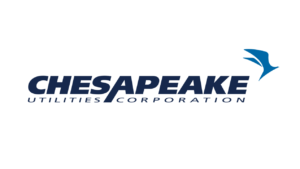

According to World Health Organisation, around 50 million people worldwide have epilepsy, making it one of the most common neurological conditions globally. It is estimated that up to 70% of people living with epilepsy could live seizure-free if properly diagnosed and treated. In Scotland alone, 55,000 people are affected by epilepsy. Children and older people are most at risk of developing this common serious neurological condition, but anyone can develop epilepsy at any time, and eight people a day in Scotland do. Epilepsy Scotland works with people affected by epilepsy to ensure their voice is heard. They believe people with epilepsy have a right to determine their way of life; be free from discrimination and stigma; be valued and included in society, and access high-quality medical, social, and information services.
Having worked in all sectors, in different roles, Lesslie Young brings a wealth of experience to Epilepsy Scotland. Her view was, is while Epilepsy Scotland is a registered charity, it is essentially an SME and should, in the context of the charitable aims and objectives of the organisation, conduct itself as such. She set about changing the culture from one that focused on what could not be done to being entrepreneurial in thought and focusing on what could be done.
The CEO’s dedication to giving her team space to flourish has created a highly skilled team encouraged to be creative in their ideas to better support epilepsy and create sustainability for the organisation. Using experience and mistakes as a learning opportunity, Lesslie has increased the staff’s desire to dream big and realise those dreams. The combination of applying business principles and processes to the organisation’s operational side, has secured the charity’s position for years to come. Lesslie’s commitment to improving the lives of people living with epilepsy has never wavered, and her desire to develop a team to help her achieve that goal is equally strong.
Fighting Epilepsy
Epilepsy Scotland was constituted in 1954. The purpose was to support and provide supported employment for people living with epilepsy in Scotland. Besides, there was a strong desire to reduce stigma, improve access to quality health and social care and education. As social care evolved and changed focus on how best to support individuals, Epilepsy Scotland evolved and altered service provision. When Lesslie came into post, she wanted to drive that change using the experience of individuals living with the condition, their parents, carers, and guardians. She wanted to align that with clinical expertise from epilepsy specialist nurses and neurologists. By doing so, they were increasing the awareness of the condition, and the challenges people were encountering. As a charity, the aim is not to make a profit, but there needs to be a margin to invest in research, develop new services and maintain existing ones. “Funding has and especially now continues to be an issue. Whilst it is always argued by central government, in our case, the Scottish Government funding is there via the local authority, the obvious and longstanding pinch point is their squeezing of those margins to the extent the service must run at a loss, must be discontinued and or the provider goes out of business,” says Lesslie. Because of exactly that, the difficult decision to make a complete line of business redundant had to be made. Whilst difficult on many fronts, it was a decision that secured the future of the business. That line of business supported approximately 40 individuals, but by securing the business’s future, it ensures thousands are supported.
In 2009 Epilepsy Scotland was approached for support to develop an epilepsy service in a health board area where there was none. At that time, it appeared there was no way to provide that support. Lesslie approached three pharmaceutical companies to explore the idea of them providing the finance using Epilepsy Scotland as the conduit, and Epilepsy Scotland would provide the service. That was essential as historically, health boards were and still are hesitant to accept finance from pharmaceutical companies as they feel it compromises their objectivity. All three accepted the model and collaborated through a signed Joint Working Agreement. One provided the set-up finance, and the other two, in partnership with Epilepsy Scotland, provided finance and resource support, all in equal measure. Epilepsy Scotland provided all the administrative support, and the Epilepsy Specialist Nurse (ESN) who evidenced the need and proof of concept. At the end of the three-year project, one company and Epilepsy Scotland worked together on the same basis for a further year to train the new ESN. “We are now providing support to secure a paediatric service ESN. This model was controversial and scorned by many in the professional arena, including ESNs. Once proven as a working model, others have asked for guidance as to how to make it work,” says Lesslie.
The Support System
Recognising the anecdotal evidence was building around people with epilepsy inadvertently entering the criminal justice system because of some seizure activity being misinterpreted, Lesslie approached Police Scotland and the Crown Prosecution and Procurator Fiscal Service (COPFS) to see how this could be addressed. The result was a three-way collaboration in the development of a training resource. This, in turn, was supported by face-to-face training of some police officers and regular input to COPFS, especially those involved in case marking. The appetite for learning was immense, and success can be measured by the appointment of two epilepsy ambassadors in the COPFS and a dedicated page on their website for further information about the particular types of epilepsy that may cause this misinterpretation. Most recently, Lesslie shared the collaboration with Police Scotland and COPFS in Canada. “Whilst our approach was identified as one to aspire to it is vital to remember cultures, approaches, context differ hugely. There is no one size fits all,” adds Lesslie. “Whenever reviewing existing services, existing processes and procedure or looking to develop a new one, it is important to start by asking why? The how, the what and the where will follow.”
Epilepsy Scotland is quick to respond and invest in services to solve problems facing people with epilepsy. Following information that people with epilepsy were disadvantaged and struggling to access their disability benefits, we developed one of the only epilepsy-specific Welfare Rights services in Scotland. “Our team have a much higher than average success rate which supports people with epilepsy to achieve financial security,” she explains. “Our Welfare Rights Officers are highly respected and are in regular contact with Scottish Government officials to advise on how the social security system should be devolved and managed in Scotland.” Therefore, their reach extends past the client base to shape social security for thousands living in Scotland for decades to come. Their dedicated Welfare Rights Service has supported many people with epilepsy and secured more than £3 million in client financial gains. Epilepsy Scotland has also had cases referred to the upper tribunal, which will have impacted case law. Lesslie would like to add a supported employment and an occupational health advisory service to complete that support circle. Securing employment when there is a diagnosis of epilepsy or retaining existing employment if someone develops epilepsy while in employment is difficult.
Navigating through the Pandemic Towards the Future
The pandemic has challenged people in ways one could never have imagined. “The agility with which each team approached those challenges and provided solutions to them placed us ahead of the curve from minute one,” says Lesslie. “On a practical basis our training provision changed from fully on site to digital within two weeks, losing next to no income.” Similarly, fundraising moved swiftly to all digital platforms, and the creativity around individual events and challenges online maintained the fundraised income. “As these are our two main income generating streams, the organisation is secure and well placed to provide support for years to come. I am proud of the Epilepsy Scotland team and how they have approached the challenges,” she says. At the outset, Lesslie was clear; homeworking was based on trust. She was not counting hours or looking at screen time. She looked at what was being done, how it benefited the organisation and those it represents. She was not disappointed or let down. The organisation has once again demonstrated its resilience, flexibility, person-centered approach in everything it does. It remains ahead of the curve.
Many living in rural Scotland have limited access to services and often report feelings of isolation and loneliness. “We knew the pandemic would only increase these feelings. In response to this, we implemented a Check-In service which people across Scotland could sign up to and receive a weekly check-in call from our Helpline and Information Officer,” says Lesslie. “This service is working well, one participant who lives in the rural Highlands, said the call was the highlight of their week and provides the confidence needed to deal with the restrictions brought to bear by the pandemic and rural living.”
The Policy department at Epilepsy Scotland is currently running their 2021 Scottish Parliament campaign and has developed a manifesto that details several asks of the next Scottish Government and MSPs elected group. They are working hard with political stakeholders as they believe these asks are the key to make Scotland the best place to live for people with epilepsy. “We are committed to ensure these asks become a reality, they will drive our work for the next five years, running parallel to the Scottish parliamentary term,” adds Lesslie.
Lesslie believes it is the responsibility of all in leadership roles to share their experience, when, and how their inner strength reserves have needed to be tapped into. She created #SWOT, Strong Women Out There, to inspire other women and the next generation of strong women. A diverse group of women in business and some still at school or the beginning of their career listen to a woman sharing, not her journey, but when and why she had to dig deep. It has been a great success, and something Lesslie is enormously proud of.

“Our Welfare Rights Officers are highly respected and are in regular contact with Scottish Government officials to advise on how the social security system should be devolved and managed in Scotland.”
© THE CEO PUBLICATION 2021 | All rights reserved. Terms and condition | Privacy and Policy